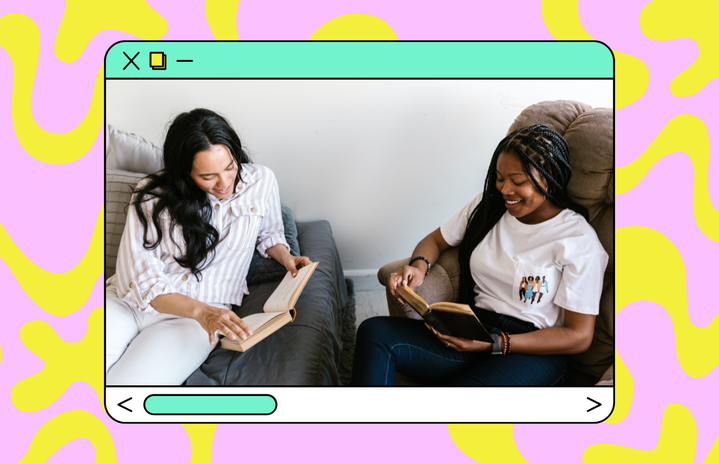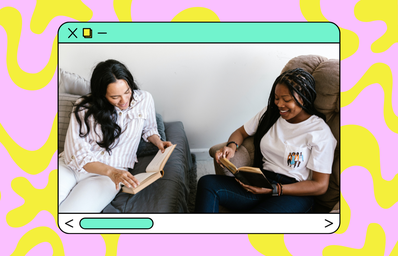CW: Discussion about abuse depicted in books; Read at your discretion
#BookTok has changed the reading community. Of course, you’re thinking, “Well duh!” but I promise this goes beyond just recommending books to each other. Sure, social media has broadened the scope of the reading community yet at the same time, there is an interesting dynamic between its positive and negative influence.
For those of you who don’t know, #BookTok is a community of readers on TikTok. More broadly, readers share their favorite books, and book reviews, create a space for discussion about the book, and more. Within this community, there are subset communities of readers who gush over a particular author. While this sounds like a positive opportunity to grow as a reader (and for authors to get their books out there), you’d be surprised how this type of video can be harmful or damaging.
Bad Things that Came Out of #BookTok
#BookTok is a great place to get recommendations for your next read. Not only can they break down the book tropes or advertise the book in a new way, but they can also help you find books you wouldn’t know existed otherwise. However, these recommendations can become a problem, especially when younger audiences are consuming them.
The minimum age to have a TikTok is 13 years old and even then TikTok recommends the parental supervision function. TikTok also has no way to regulate this, as they do not check their age. As I’m sure you can assume, unsupervised minors having access to this content shouldn’t have dire consequences.
One of the prominent communities of #BookTok is Colleen Hoover and Sarah J. Maas fans. They are loud and proud and this can become a problem for two reasons. First, their books are labeled as Adult or Young Adult, respectively, and romance. If a 13-year-old is shown one of these videos, it’s natural for them to want to read this book even if they are not the intended target audience. Unlike before the widespread use of social media, many minors went to their school libraries (at least I did), which in turn helped limit what they read to age-appropriate content. Now, I’ve seen too many TikToks of young readers going up to a librarian, asking if they have an R-rated book.
Speaking on content brings up my next reason. Adult romances typically describe on-page sex, and there’s nothing wrong with that if you are an older reader. But this does bring up the question, should a 13-year-old be reading a book that contains smut? That is to be decided, but people also argue that these books normalize inappropriate topics on impressionable minds.
Critics of Colleen Hoover believe she romanticizes abuse in her novels (some notable are domestic violence or psychological abuse). If you don’t believe me, the female main character of November 9 falls in love with the man who locked her in a building he lit on fire. Critics believe if impressionable young readers are told that they can still be with someone who hurts them, then they won’t see the signs of abuse if it happens to them in the future. Critics of Sarah J. Maas claim her depiction of age gaps is disturbing. While a 30-year-old with a 50-year-old may be acceptable to some due to the fact they are both mature in experience, many think Maas’ 500-year age gap with an 18-year-old is not the same. Critics view this as predatory behavior and definitely shouldn’t be in the hands of minors.
Good Things that Came Out of #BookTok
Of course, I may sound harsh, especially when talking about Hoover and Maas, but some good things came out of #BookTok.
Firstly, small authors who would’ve never had a chance otherwise can get their big break. We have phenomenons like Xiran Jay Zhao who achieved #1 on NY Times Best Sellers’ list for their debut novel or cases like Ruby Dixon who became a top seller for a book that was published five years ago.
Bouncing off Xiran Jay Zhao, one of the things #BookTok does right is highlighting marginalized communities. If you didn’t know, Zhao themselves is a queer, Asian author and the fact they were able to achieve #1 is a huge step forward for marginalized authors. There are also many accounts dedicated to uplifting these voices. One phrase to come out of this online community is to “Read Diversely,” which encourages readers to actively search for books written by diverse authors.
One voice I want to highlight is Bookish Brews. Amanda only recommends and discusses books from marginalized communities. However, the one thing I admire about her content is how she unabashedly speaks on issues and obstacles these communities face in the reading/writing industry. It is accounts like @AmandaBrews (who highlights BIPOC with an emphasis on Asians), @ayannamarshay (who highlights Black voices), @tomesandtextiles (who highlights Latinx voices), and @cindybaldwinbooks (who highlights disabled voices) that make #BookTok a safe place for marginalized authors and their readers.
However, people like Amanda are few and far between. It’s no secret that TikTok pushed certain creators over others. While they claim they are only showing content users want to see, many activists claim TikTok has a racial bias. If we look at Amanda’s or Cindy’s accounts, this argument is certainly compelling. After all, if I were to simply search #BookTok on TikTok’s search page, creators like them would most likely not show up on the top of their recommended list.
Conclusion
The state of #BookTok remains undecided. While it is a great place to uplift marginalized voices, many negatives negate this positive. I do not know how to solve the minor issue raised in the “Bad Things” section, nor do I know how to push the actions in the “Good Things” section to a broader scale. However, I do know that if we as users actively interact with accounts like Amanda’s or Carmen’s and we continue to interact with TikToks highlighting diverse voices, I can see #BookTok growing to have more pros than cons.


